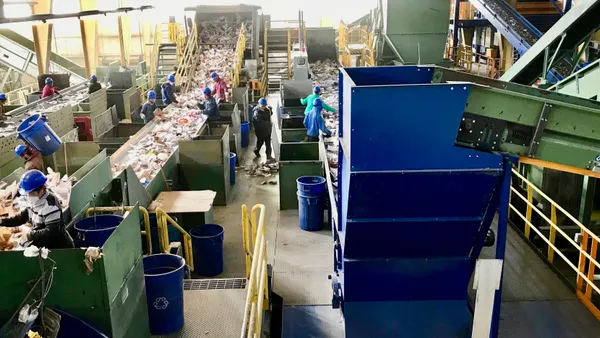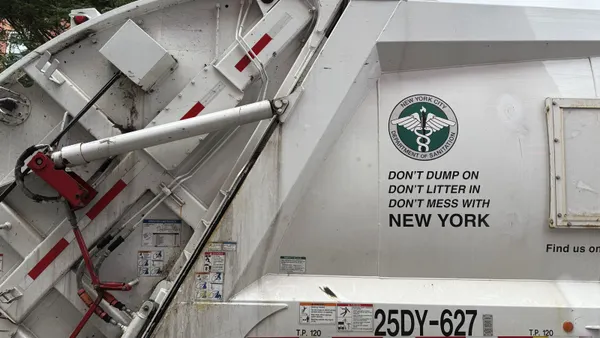Dive Brief:
- Closed Loop Partners announced Tuesday that Kimberly-Clark, Coca-Cola, Dow Chemical and Partnerships in Environmental Management for the Seas of East Asia (PEMSEA) are partnering with recently launched Closed Loop Ocean. Closed Loop Ocean is looking to facilitate investments in waste management and recycling solutions in Southeast Asia.
- PEMSEA, an intergovernmental organization, and the other partnering groups will help Closed Loop "bring in additional investors [and] understand the local market and supply chain dynamics," Rob Kaplan, managing director of Closed Loop Partners, said in a statement. Bridget Croke, VP of external affairs for Closed Loop Partners, told Waste Dive that the companies are also funding partners.
- Croke told Waste Dive that Closed Loop Ocean would be narrowing its focus to two or three markets in the Indian and/or the Southeast Asian region. Closed Loop will announce those markets after a steering committee meeting in Singapore later this month, she said.
Dive Insight:
Closed Loop Oceans launched at the Our Ocean conference in Malta last year, with a focus on preventing plastic waste from flowing into the ocean. At the time of the launch, a managing director with the Ocean Conservancy estimated improving waste management solutions in that region could "cut the flow of plastic going in the ocean by half by 2025."
That geographic focus could be crucial, as a report from June last year showed just 20 rivers around the world contribute 67% of plastic pollution that comes from inland populations, largely in Southeast Asia.
This trend has not gone unnoticed in the region, as China has at times cited a large amount of plastic pollution as one of the reasons why it is cracking down on scrap imports to clean up its environment. Plastics shifting to Southeast Asia because of China's crackdown could exacerbate the problem of marine pollution if there is not proper waste management infrastructure in place where imports are increasing, further highlighting a need for the kind of investment in infrastructure that Closed Loop is looking to fund.
While often talked about as an international issue, the activism around reducing the amount of plastic that enters the ocean will impact the domestic industry, too — and it's not without reason. A study from the Rochester Institute of Technology estimates nearly 22 million pounds of plastic debris enters the Great Lakes each year. The Environmental Protection Agency has also provided funding to clean up marine debris in domestic waterways.
Local ordinances, like ones targeting plastic bags, straws or flatware, can be seen as active measures to reduce the amount of plastic waste that reaches waterways. However, focusing on improving waste collection practices and recycling and reusing material that has already been harvested instead of disposing plastic once it's been used are often seen as more proactive measures for keeping the material out of the ocean.









